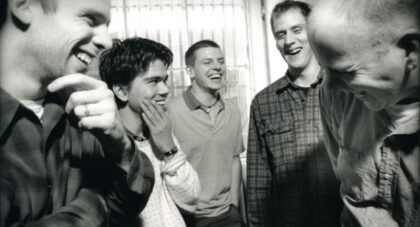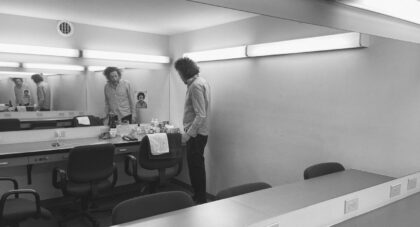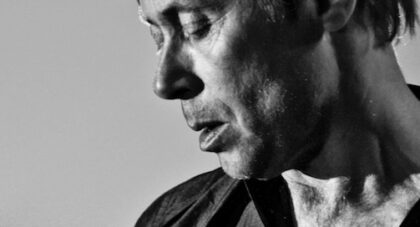Dwight Twilley doesn’t care much about terms like “power pop.”
It’s not that he objects, he just doesn’t care about the tag. “The Beatles were pretty much the greatest power pop band of all time, so if you want to put me in the same category as them, I’m fine with it,” he laughs, speaking over the phone with Aquarium Drunkard
Indifference aside, Twilley’s records, with the late Phil Seymour as the Dwight Twilley Band and solo, remain key entries in the power pop canon, undeniably hooky and tight LPs blending Fab Four jangle with Sun Records-style rockabilly. The records attracted the ears of fans like Tom Petty, who’d go on to contribute to Twilley recordings, and earned the Oklahoma singer a few major hit. As the 70s drew to a close, Twilley shuffled between labels, eventually slinking away from the public eye.
In recent years, however, Twilley has been on a tear. Self-releasing his records these days, he’s back with Always, a 12-track collection of sharp rock and pop. Following the passing of his longtime musical partner Bill Pitcock IV, Twilley enlisted a broad cast of guests for the record, “pals and friends” like Steve Allen and Ron Flynt of 20/20, Susan Cowsill, Mitch Easter, Tommy Keene, Roger Linn, Leland Sklar, and Ken Stringfellow.
Twilley spoke with AD about his history and making records in 2014. | j woodbury
Aquarium Drunkard: I know you guys recorded in England, but listening to early Dwight Twilley Band records I’m struck by the very distinct American edge, in terms of the rockabilly influences and the “Sun sound.”
Dwight Twilley: My partner Phil Seymour and I, when we were kids…we were kind of Simon and Garfunkel guys. We had these pretty little songs and pretty little harmonies. We lived in Tulsa, Oklahoma, the middle of the country. We had a little collection of tapes and we thought we should have somebody from a record company listen to these. Maybe somebody would like ‘em, you know? We couldn’t afford to go all the way to Los Angeles, that was out of the question, and we couldn’t afford to go to New York, but we had heard that they had recording studios and record companies in Memphis. That wasn’t too far away. So we got in my little ’58 station wagon and brought our cassette tape of songs and ended up in Memphis, Tennessee, just literally driving down the street looking for what might be a record company. Phil said, “That’s gotta be a record company,” and we just walked in the door and played our little cassette for some guy named “Phillips,” and it turned out he liked our music. It meant nothing to us at all that it happened to be Sun Records.
Only the good shit. Aquarium Drunkard is powered by its patrons. Keep the servers humming and help us continue doing it by pledging your support.
To continue reading, become a member or log in.


